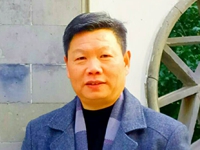Jin Liangxiang
 |
Dr Jin Liangxiang is a research fellow at Shanghai Institutes for International Studies. His current research fields are Middle East politics and international relations. |
August 25, 2023
- Future of Middle East should be defined by strategic autonomy of regional actors
- The last decade has seen China becoming increasingly influential in the Middle East, which has caused rounds of discussions about whether the country will fill the vacuum left by the U.S.
March 21, 2023
- China's détente in the Middle East aims to bring peace
- Rivalry or competition for geopolitical influence between Iran and Saudi Arabia has been a defining feature of regional tensions for decades – China looks to change that.
March 9, 2023
- Palestine issue: More must be done
- The Palestine issue is facing new realities in addition to old problems. Steps must be taken to reverse the current trends, and prevent the issue coming to a head.
January 30, 2023
- What is really behind Iran's nuclear deadlock?
- As the Iran nuclear deal remains in limbo, American politicians are pointing fingers at China for its supposed role in the stalemate. But a closer look reveals that the real obstacle lies within U.S. domestic politics.
July 19, 2022
- Biden's Middle East visit: A lip-service show
- Though ambitious, the visit cannot achieve meaningful, sustainable results as the U.S. has neither the necessary capability nor willingness to get involved substantially in regional affairs.
December 23, 2021
- Limited rapprochement between UAE and Israel
- While political ties between the UAE and Israel are thawing, there remain a number of issues that stand to get in the way of a complete rapprochement.
November 24, 2021
- The humanitarian crisis in Afghanistan: It's time to act
- Given the economic and humanitarian crisis that the Afghan people are suffering, the international community needs to put the politics aside and find ways to provide financial support and necessary assistance.
October 13, 2021
- Opportunities to rebuild security in the Middle East
- The U.S. readaptation of its Middle East policy will provide opportunities for regional actors to build security structure via cooperation and coordination.
September 26, 2021
- SCO to make greater contribution to common prosperity
- The Shanghai Cooperation Organization (SCO), with the presence of Iran as a key member, is expected to make greater contributions to world peace and common prosperity.
August 18, 2021
- Taliban returns amid failure of US interference policy
- The past couple of weeks has seen the Taliban sweep across Afghanistan, entering the capital Kabul on Aug. 15. Hopefully, Afghanistan will see the Taliban's rule begin after a peaceful transition.


